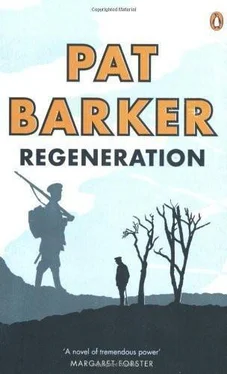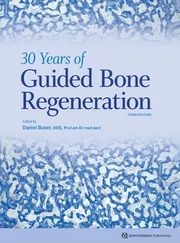That evening, rather to Rivers’s surprise, they went to the pub. He was surprised because he’d been assuming Burns was isolated here, but apparently all the locals knew him. They’d watched him growing up, summer by summer. The family had been staying here when war broke out. Burns had joined up along with most of the local lads. They all remembered him in his uniform, in the first days and weeks of the war, and perhaps that mattered a great deal. In London, Burns said, on his first trip out in civilian clothes, he’d been handed two white feathers.
Here, as soon as they pushed the bar door open, he was hailed by several people, and by one man in particular: ‘Old Clegg’. Clegg had rheumy blue eyes, whose overflow had dried to a scurfy crust at his temples; three brown but very strong teeth; unidentifiable stains on his abdomen, and other stains, only too identifiable, further down. His conversation was so encrusted with salty Suffolk sayings that Rivers suspected him of deliberate self-parody. That, or leg-pulling. Once he’d discovered Rivers was interested in folklore, he was well away. Rivers spent a thoroughly enjoyable evening being initiated into the folklore of rural Suffolk. By closing time, he was convinced Clegg was possibly the most unreliable informant he’d ever had. For sheer imaginative flights of fancy none of the Melanesians came anywhere near him. ‘That man is a complete fraud,’ he said as they left the pub.
But Burns disagreed. ‘He’s not a fraud, he’s a rogue. Anyway as long as he teaches me flint-knapping, I don’t care.’
∗
Next morning the weather had changed. At dawn there was a strip of clear blue on the horizon, fading to yellow, but the sky darkened rapidly, until, by mid morning, the clouds humped, liver-coloured, and the sea was dark as iron. The wind had risen during the night, sweeping away the last remnants of mist. At first it came in little gusts, lifting the thin carpet in the hall, swirling dust in corners, then in blasts that made waves on the surface of the estuary, rocking the yachts until the rattle of their rigging became a frenzy, while on the beach great waves swelled like the muscles of an enormous animal, rising to crests that hung and seethed along their full length, before toppling over in thunder and bursts of spray.
Rivers worked on his paper all morning, looking up now and then to find the window mizzled with rain. Burns slept late, having had another bad and very noisy night. He appeared just before noon, pink eyed and twitching, and announced he was going to the White Horse to see Clegg and arrange a definite time for his flint-knapping session. Clegg was proving rather difficult to pin down.
‘Git him up agin’ a gorse bush, bor,’ Rivers said, in a passable imitation of Clegg’s voice. ‘He ont back away then.’
‘That’s girls in kissing season, Rivers.’
‘Is it? Well, I shouldn’t go kissing Clegg. I doubt if flint-knapping’s worth it.’
He was immersed in his paper again before Burns left the house.
He came back an hour later, looking rather pleased with himself. ‘Thursday.’
‘Good.’
‘I thought we might go for a walk.’
Rivers looked at the rain-spattered glass.
‘It’s died down a bit,’ Burns said, not altogether convincingly.
‘All right, I could do with a break.’
The sea was racing in fast. The fishermen’s huts were empty, the boats hauled up high above the last stretch of shingle, with the fishing nets in dark heaps behind them. Either they’d not been out today or they’d turned back early, for Rivers had seen none of them come in. Even the seabirds seemed to be grounded, huddled in the lee of the boats, watching the town with unblinking amber eyes.
Faced with this sea, the land seemed fragile. Was fragile. To the north, cliffs were scoured away, to the south, notice boards were buried up to their necks in shingle. And the little Moot Hall that had once stood at the centre of the town was now on the edge of the sea.
They walked as far as Thorpeness, then turned back, not talking much, since the wind snatched the breath from their mouths. The sea had covered the thin strip of sand, so they had to walk along the steep shelf of shingle, a lopsided business that set the back as well as the legs aching.
It took them two hours, there and back, and Rivers was looking forward to the fire and — if he could contrive it — toasted tea cakes for tea. Breakfast, lunch and dinner, he could do without, but afternoon tea mattered. His boot squelched on something soft. Looking down, he saw the place was littered with cods’ heads, thirty or more, with blood-stained gills and staring eyes. It gave him no more than a slight frisson. Obviously the fishermen gutted their catch and threw the offal away. But Burns had stopped dead in his tracks and was staring at the heads, with his mouth working. As Rivers watched, he jerked his head back, the same movement that had been so common when he first arrived at Craiglockhart.
‘It’s all right,’ he said, when Rivers went back for him. But it was obviously very far from all right.
They got back to the house. Rivers made tea, though Burns didn’t manage to eat anything.
After tea they went out and piled sandbags against the doors, struggling with the heavy bags through driving rain and then struggling again to close the storm shutters. The air was full of spray and blown spume.
‘We should’ve done that earlier,’ Burns said, wiping the rain from his face and blinking in the firelight. He was very concerned to pretend everything was normal. He sat on the hearth rug, in his favourite position, while the wind buffeted and slogged the house, and talked about his drink with Clegg and various items of local gossip. But he jumped from topic to topic, assuming the connections would be obvious when very often they were not. His mood, once he’d got over the shock of seeing the cods’ heads, seemed to be almost elated. He said more than once that he loved storms, and he seemed, at times, to be listening to something other than the roar of wind and sea.
Closing his eyes, Rivers could imagine the town entirely given over to the storm, bobbing on the tide of darkness like a blown eggshell, without substance or power to protect. Burns’s conversation became more and more disconnected, the jerking of his head more pronounced. Piling up sandbags, followed by the nearest thing to a bombardment nature could contrive, was not what Rivers would have prescribed. He was prepared to sit up with Burns, if he wanted to stay up, but Burns started talking about bed rather earlier than usual. Probably he took bromides. Rivers would have liked to advise him to stop, since they certainly wouldn’t help the nightmares, but he was determined to let Burns be the first to raise the subject of his illness.
The evening ended with nothing to the point having been said. Rivers went to bed and undressed in the darkness, listening to the wind howl, and imagined Burns in the room above, also listening. He read for a while, thinking he might be too tense to go to sleep, but the fresh air and the struggle with the wind along the beach to Thorpeness had tired him out. His eyelids started to droop and he switched off the light. The whole house creaked and groaned, riding the storm like a ship, but he enjoyed that. He’d always found it possible to sleep deeply on board ship, though on land sleep often eluded him.
He was woken by what he immediately took to be the explosion of a bomb. Less than a minute later, while he was still groping for the light switch, he heard a second boom and this time managed to identify it as the sound of a maroon. The lifeboat, no doubt. He was getting out of bed to go to the window when he remembered that he probably ought not to open the shutters, for he could hear from the whistling of wind and lashing of rain that the storm had by no means blown itself out. His heart was pounding, unreasonably, since there was nothing to be afraid of. He supposed it was having come straight from London with its incessant talk of air raids that had made him identify the sound so positively as a bomb.
Читать дальше












